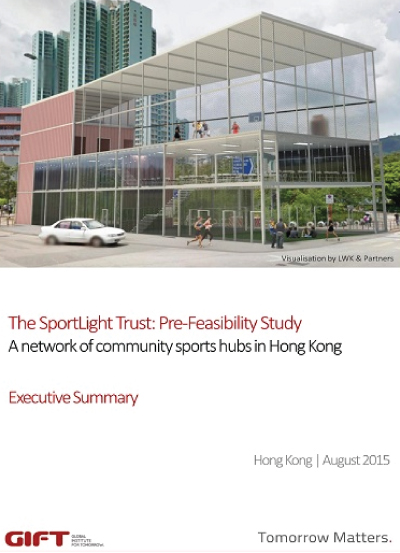In dense, fast-paced cities like Hong Kong, access to sports and physical activity is critical for both physical and mental wellbeing, as well as for building inclusive, connected communities. Yet, accessible sports facilities remain scarce due to limited space and resources. Government-run facilities are high-quality but too few, forcing residents to travel long distances, face overcrowding, or give up on regular exercise altogether.
This lack of access disproportionately affects vulnerable groups—including children, the elderly, the underprivileged, new immigrants, unemployed individuals, and single parents—leading to lower fitness levels and reduced community cohesion. Although the HKSAR Government has expressed support for wider sports participation, there is a clear gap in local, affordable, and inclusive sports infrastructure.
Proposed Recommendation
To address this, the report proposes developing a territory-wide network of Community Based Sports Hubs to complement existing government facilities. The proposal includes:
- Creation of the SportLight Trust
A Sec.88 tax-exempt organisation to raise funds, identify locations, and oversee hub development and governance. - Network Scale & Timeline
30–50 financially viable hubs over 10 years; initial pilot of 2–3 hubs, scaling to five new hubs per year. - Facility Purpose
Multi-functional, low-cost sports spaces for all ages and backgrounds, doubling as venues for community events to foster inclusion. - Social Enterprise Model
Hubs to be operated under contract by selected operators as social enterprises, providing employment and vocational training for local youth. - Funding Structure
Public and private sector donations, sponsorships, naming rights, and eventually an endowment fund to reduce reliance on ongoing donations. - Operator Agreements
HK$10,000/month management fee plus 50% surplus share to the Trust, with performance tied to financial and social KPIs, including affordability quotas for community use. - Governance & Oversight
Transparent governance, centralised financial systems, regular audits, and strong financial controls. - Financial Sustainability
Operations projected to be self-sustaining by Year 4, excluding additional potential income from the endowment fund.


